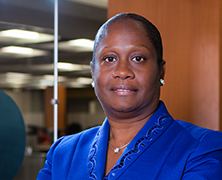Miami Dade College’s President is Passionate Empowering All Learners
Malou Harrison, who has 35 years of experience in the field of higher education, is the president of Miami Dade College (MDC) North Campus—the college’s first location, which opened in 1960. She also oversees the institution’s two major academic centers: MDC-West and the Carrie P. Meek Entrepreneurship Education Center.
During her 25 years with MDC, Malou has served in various capacities, including dean of students, chief of staff to the college president, and adjunct professor of English. She holds a doctorate in community college leadership from Walden University, a master’s degree in TESOL from Florida International University, and a bachelor’s degree in management from the University of Buffalo.
Malou’s tireless dedication to empowering youth and adult learners has led her to author scholarly articles, which have been published in the League for Innovation in the Community College’s Student Services Dialogues, as well as the Association of American College and Universities.
“What makes my career so extremely rewarding,” said Malou “is to be able to serve as an example to the next generation of women leaders that they, too, can grow and contribute in higher education professions.”
On a national level, Malou serves on the Blue Ribbon Panel of the Community College Consortium for Immigrant Education. Locally, she sits on the Coordinating Council of Miami Dade County Sister Cities International, City of North Miami University Relations Board, African American History Task Force of Miami Dade County Public Schools, and the Board of Directors of Miami Book Fair International. She is also the PTSA Vice President of Coral Gables Senior High School.
An avid volunteer in her own community, Malou spends time with clients of Camillus House, a nonprofit organization that provides humanitarian services to men, women, and children who are poor and homeless. She also helps address issues of food insecurity with Meals of Hope, a nonprofit organization that helps feed the less fortunate, both locally and internationally.







